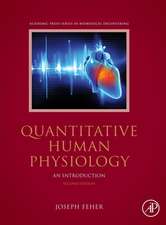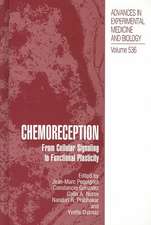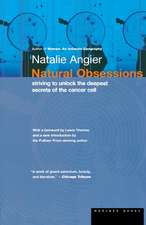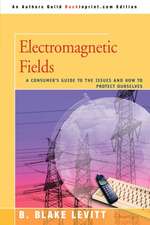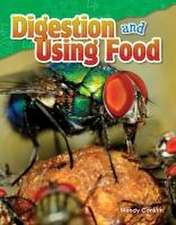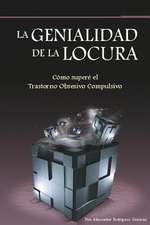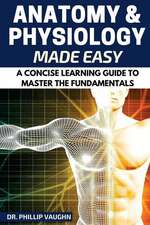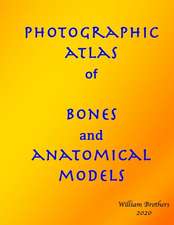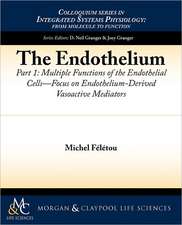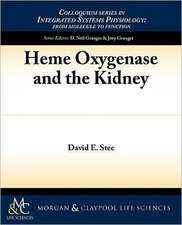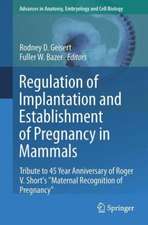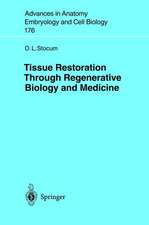Metallomics: Recent Analytical Techniques and Applications
Editat de Yasumitsu Ogra, Takafumi Hirataen Limba Engleză Hardback – 9 mar 2017
| Toate formatele și edițiile | Preț | Express |
|---|---|---|
| Paperback (1) | 1113.90 lei 38-44 zile | |
| Springer – 20 iul 2018 | 1113.90 lei 38-44 zile | |
| Hardback (1) | 1123.10 lei 38-44 zile | |
| Springer – 9 mar 2017 | 1123.10 lei 38-44 zile |
Preț: 1123.10 lei
Preț vechi: 1182.22 lei
-5% Nou
Puncte Express: 1685
Preț estimativ în valută:
214.93€ • 223.56$ • 177.44£
214.93€ • 223.56$ • 177.44£
Carte tipărită la comandă
Livrare economică 09-15 aprilie
Preluare comenzi: 021 569.72.76
Specificații
ISBN-13: 9784431564614
ISBN-10: 4431564616
Pagini: 360
Ilustrații: VIII, 364 p. 137 illus., 76 illus. in color.
Dimensiuni: 155 x 235 mm
Greutate: 0.64 kg
Ediția:1st ed. 2017
Editura: Springer
Colecția Springer
Locul publicării:Tokyo, Japan
ISBN-10: 4431564616
Pagini: 360
Ilustrații: VIII, 364 p. 137 illus., 76 illus. in color.
Dimensiuni: 155 x 235 mm
Greutate: 0.64 kg
Ediția:1st ed. 2017
Editura: Springer
Colecția Springer
Locul publicării:Tokyo, Japan
Cuprins
Part I Overview.- Chapter 1. Metallomics: Integrated Biometal Science.- Part II Analytical techniques and strategies surrounding metallomics.- Chapter 2. Speciation and identification of chalcogen-containing metabolites.- Chapter 3. Visualization of intracellular elements using scanning X-ray fluorescence microscopy.- Chapter 4. Quantitative elemental bioimaging protocol using femtosecond-Laser Ablation-ICP-Mass Spectrometry coupled with glass standard material.- Chapter 5. Single cells analysis by using ICP-MS.- Chapter 6. Synchrotron radiation X-ray analysis of metal accumulating plants.- Chapter 7. 77Se NMR Spectroscopy for Speciation Analysis of Selenium Compounds.- Chapter 8. Protein quantification and quantitative phosphorylation analysis by the determination of hetero atoms (S and P) by means of nanoHPLC-ICPMS.- Chapter 9. Analysis of drug active pharmaceutical ingredients and bio-molecules using triple quadrupole ICP-MS.- Chapter 10. Highly sensitive analysis of proteins and metabolites by metal tagging using LC-ICP-MS.- Part III Application of metallomics in molecular biology, medicine and pharmaceutical sciences.- Chapter 11. Comprehensive element analysis of prokaryotic and eukaryotic cells as well as organelles by ICP-MS.- Chapter 12. Iron isotope signature for red blood cell samples from Japanese female donors of various ages.- Chapter 13. Roles of zinc transporters in cellular transport of cadmium and manganese.- Chapter 14. Link between metal homeostasis and neurodegenerative diseases: crosstalk of metals and amyloidogenic proteins at the synapse.- Chapter 15. New insight into metallomics in cognition.- Chapter 16. Frontier of development for metallodrugs on the basis of metallomic pharmacology and medicinal inorganic chemistry.
Recenzii
“Metallomics: recent analytical techniques and applications seems adequate for Ph.D. students who are trying to approach the topic of metallomics as well as for scientists working in this discipline to update their knowledge of the field. … It provides an overview of fundamental principles, problems and tools for the analysis of biomolecules.” (Maria Montes-Bayón, Analytical and Bioanalytical Chemistry, Vol. 410, 2018)
Notă biografică
Yasumitsu Ogra
Professor, Department of Toxicology and Environmental Health, Graduate School of Pharmaceutical Sciences, Chiba University, 1‐8‐1 Inohana, Chuo‐ku, Chiba 260‐8675, Japan
Professor, Department of Toxicology and Environmental Health, Graduate School of Pharmaceutical Sciences, Chiba University, 1‐8‐1 Inohana, Chuo‐ku, Chiba 260‐8675, Japan
Takafumi Hirata
Professor, Earth and Planetary Sciences, Graduate School of Science, Kyoto University, Kitashirakawa Oiwake‐cho, Sakyo‐ku, Kyoto 606‐8502, Japan
Professor, Earth and Planetary Sciences, Graduate School of Science, Kyoto University, Kitashirakawa Oiwake‐cho, Sakyo‐ku, Kyoto 606‐8502, Japan
Textul de pe ultima copertă
This book focuses on recent topics in metallomics, a study of the metallome, or metal-containing biomolecules. Metals can induce various physiological and toxicological effects in a very small amounts, in other words, the concentrations of biometals are very low in organisms. Thus, analytical techniques for a trace amount of metal are crucial to understand the biological and toxicological functions of metals.This volume begins with an overview of metallomics including the history and development of the field. Subsequent parts provide basic and advanced techniques for metallomics. Speciation and imaging of metals are basic approaches to reveal the function of the metallome. The applications of speciation using an HPLC hyphenated with inductively coupled plasma mass spectrometry (LC-ICP-MS) and flow cytometry ICP-MS are described. As advanced approaches, the applications using a micro-flow injection-ICP-MS, an ICP-triple quadrupole mass spectrometer, an ICP-sector field mass spectrometer, and an ICP-multi-collector mass spectrometer are mentioned. For the imaging of metals, basic principles and applications of several techniques such as scanning X-ray fluorescence microscopy and ICP-MS equipped with laser ablation (LA-ICP-MS) are presented. Speciation analyses using electrospray ionization mass spectrometry (ESI-MS), X-ray Absorption Spectroscopy (XAS), and nuclear magnetic resonance spectroscopy (NMR) are also introduced. The last part highlights the medical and pharmaceutical applications of metallomics. Molecular biological approaches to reveal the effects of toxic metals, metal functions in brain and neurodegenerative diseases, and metallodrugs are explained. The topic of metal transporters is also presented.
Caracteristici
Provides basic and advanced analytical techniques and molecular biology for metallomics
Examines medical and pharmaceutical implications
Presents unique features of hybriding of elemental imaging and matrix assisted laser desorption / ionization (MALDI) imaging
Highlights recent progress in the ICP-MS and the related technique
Examines medical and pharmaceutical implications
Presents unique features of hybriding of elemental imaging and matrix assisted laser desorption / ionization (MALDI) imaging
Highlights recent progress in the ICP-MS and the related technique

